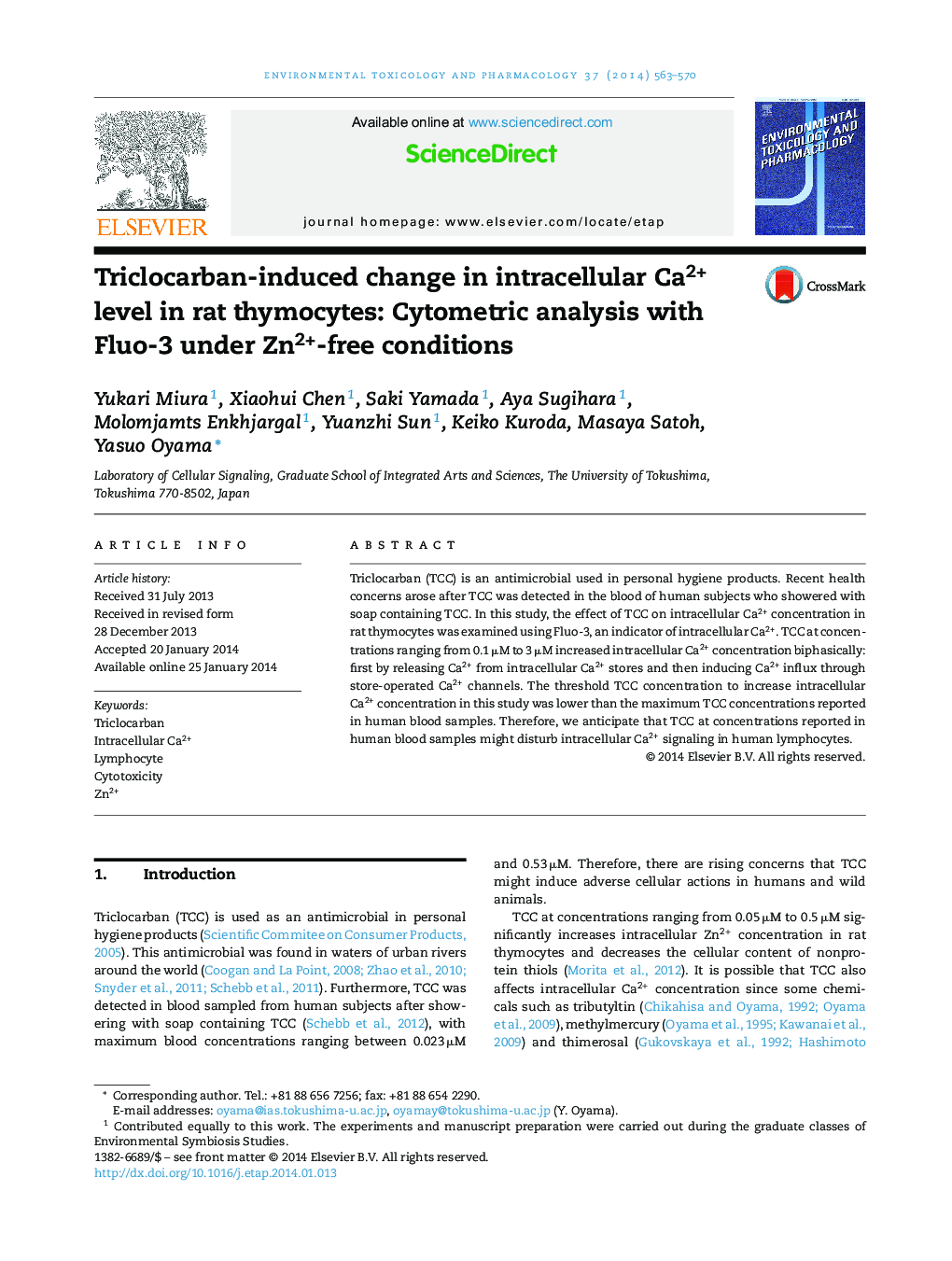| Article ID | Journal | Published Year | Pages | File Type |
|---|---|---|---|---|
| 2582996 | Environmental Toxicology and Pharmacology | 2014 | 8 Pages |
•Triclocarban is an antimicrobial used in personal health care products.•Triclocarban is reportedly detected in human blood.•Triclocarban initially released Ca2+ from intracellular store in murine cells.•Triclocarban lately induced Ca2+ influx through store-operated Ca2+ channels.•Triclocarban may disturb intracellular Ca2+ signaling in human cells.
Triclocarban (TCC) is an antimicrobial used in personal hygiene products. Recent health concerns arose after TCC was detected in the blood of human subjects who showered with soap containing TCC. In this study, the effect of TCC on intracellular Ca2+ concentration in rat thymocytes was examined using Fluo-3, an indicator of intracellular Ca2+. TCC at concentrations ranging from 0.1 μM to 3 μM increased intracellular Ca2+ concentration biphasically: first by releasing Ca2+ from intracellular Ca2+ stores and then inducing Ca2+ influx through store-operated Ca2+ channels. The threshold TCC concentration to increase intracellular Ca2+ concentration in this study was lower than the maximum TCC concentrations reported in human blood samples. Therefore, we anticipate that TCC at concentrations reported in human blood samples might disturb intracellular Ca2+ signaling in human lymphocytes.
